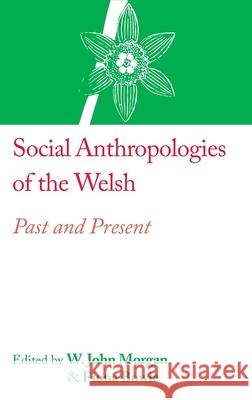Social Anthropologies of the Welsh: Past and Present » książka
Social Anthropologies of the Welsh: Past and Present
ISBN-13: 9781912385331 / Angielski / Twarda / 2021 / 278 str.
Asking the perennial question, ‘Who are the Welsh?’, this collection illustrates the history of anthropology in Wales and its distinctive contributions to this debate. Its essays range from the ethnographic insights of Gerald of Wales in the twelfth century, to analyses of the multi-cultural Wales of today. Contributors discuss the legacy of Iorwerth Peate, co-founder of the Welsh Folk Museum of St Fagans (now the National Museum of History), and the schools of research pioneering community studies of Welsh rural life in the second half of the twentieth century. Writings on the changing nature of family relations in deindustrialized settings such as the 1950s ‘new’ town of Cwmbrân and a contemporary Welsh public-housing estate provide new insights, while research on shifting patterns of religious adherence re-examine what has often been seen as a defining characteristic of Welsh society. Case studies on the challenges faced by European immigrants in Wales post Brexit and the Welsh diaspora in Patagonia add a global dimension. The interdisciplinary nature of anthropology as practised in Wales brings both a richness and openness born of collaboration. Revealing both the startling variety and continuity of Welsh life and identity, certain themes consistently emerge: connections with place and the natural world as a way of being Welsh, the complex meanings of language in identity formation and the role of kinship in belonging to the Welsh nation.











